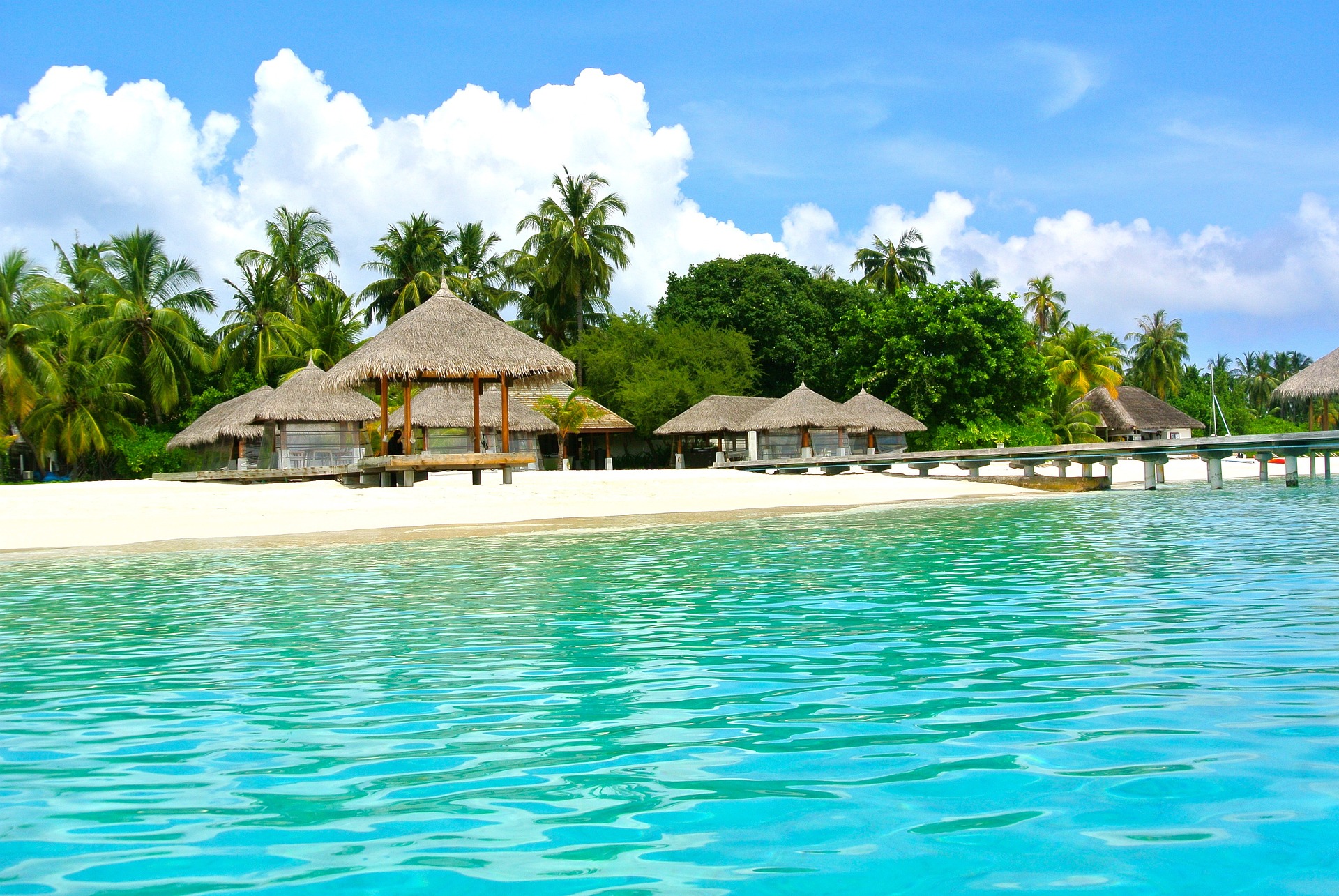
Nestled in the heart of the Indian Ocean, the Maldives stands as an epitome of tropical paradise, beckoning travelers with its pristine beaches, azure waters, and vibrant coral reefs. This archipelago, comprising 26 atolls and over 1,000 coral islands, has become synonymous with luxury, relaxation, and unparalleled natural beauty. The Maldives’ tourism sector, a cornerstone of its economy, has witnessed a meteoric rise in popularity over the years, drawing visitors from across the globe. This article explores the allure of Maldives tourism, delving into its unique attractions, sustainable practices, and the challenges it faces.
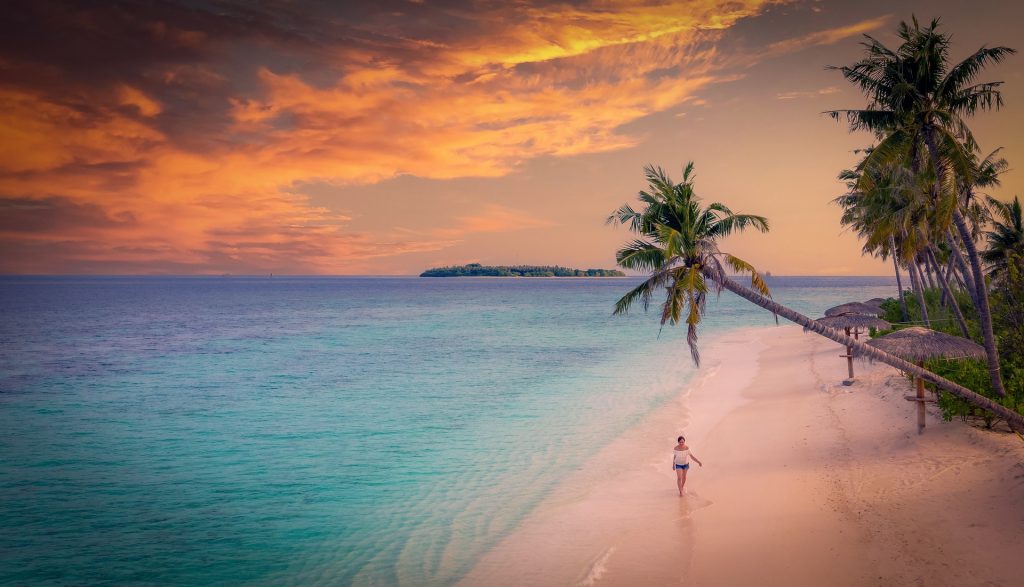
The Maldives: A Jewel in the Indian Ocean
The Maldives boasts an otherworldly landscape that captivates the imagination. Each island seems to float on the crystal-clear waters of the Indian Ocean, creating an unparalleled sense of serenity. White sandy beaches stretch as far as the eye can see, framing the turquoise lagoons that surround the coral atolls. This breathtaking scenery sets the stage for an idyllic escape, attracting honeymooners, adventure seekers, and luxury travelers alike.
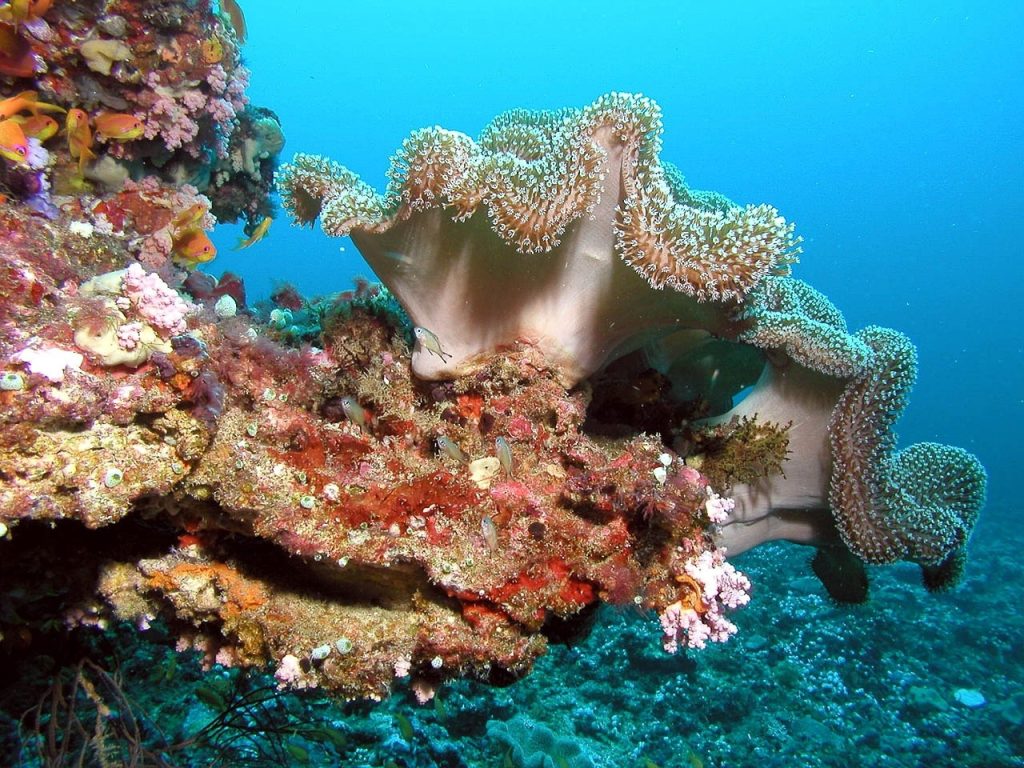
Underwater Wonderland: Coral Reefs and Marine Life
One of the Maldives’ most remarkable features is its vibrant coral reefs, which are home to a kaleidoscope of marine life. Snorkeling and diving enthusiasts are drawn to the underwater wonderland that awaits beneath the surface. Some of the world’s most diverse coral ecosystems are boasted by the Maldives, teeming with colorful fish, rays, and majestic sea turtles. A front-row seat is provided by the famous Hanifaru Bay, a UNESCO Biosphere Reserve, to witness the mesmerizing dance of manta rays and whale sharks, creating an unforgettable experience for nature lovers.
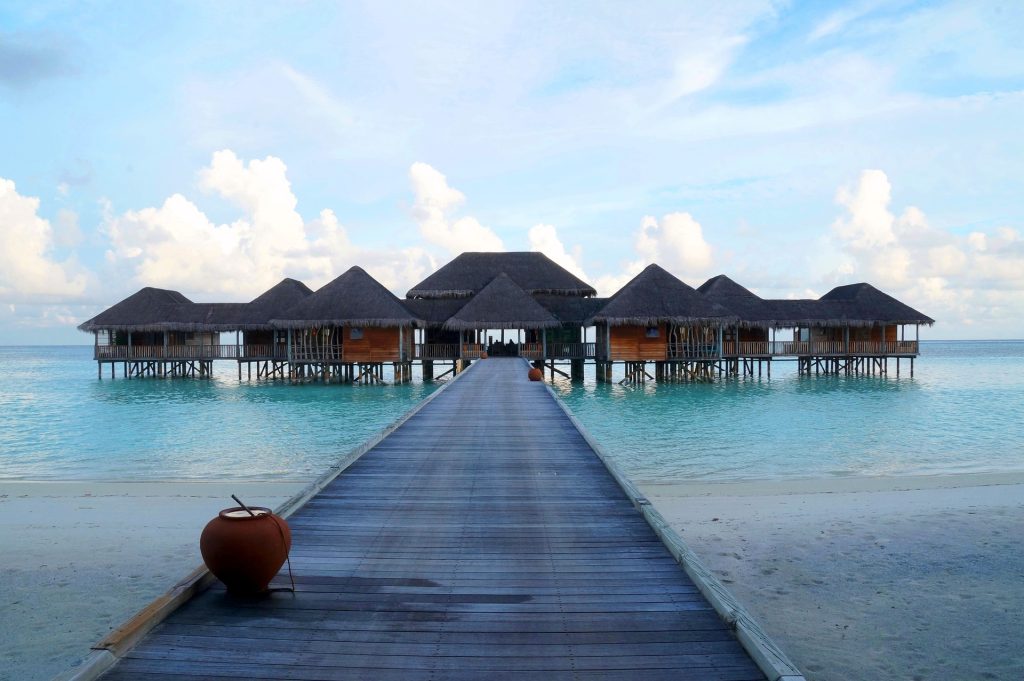
Luxury Resorts: A Haven for the Discerning Traveler
The Maldives has earned a reputation for its exclusive, overwater bungalows and luxury resorts that redefine opulence. A seamless blend of modern amenities and traditional Maldivian architecture is offered by these high-end accommodations, allowing guests to indulge in the lap of luxury while surrounded by breathtaking natural beauty. an intimate and personalized experience is ensured by the concept of “one island, one resort”, making the Maldives a top choice for those seeking seclusion and tranquility.
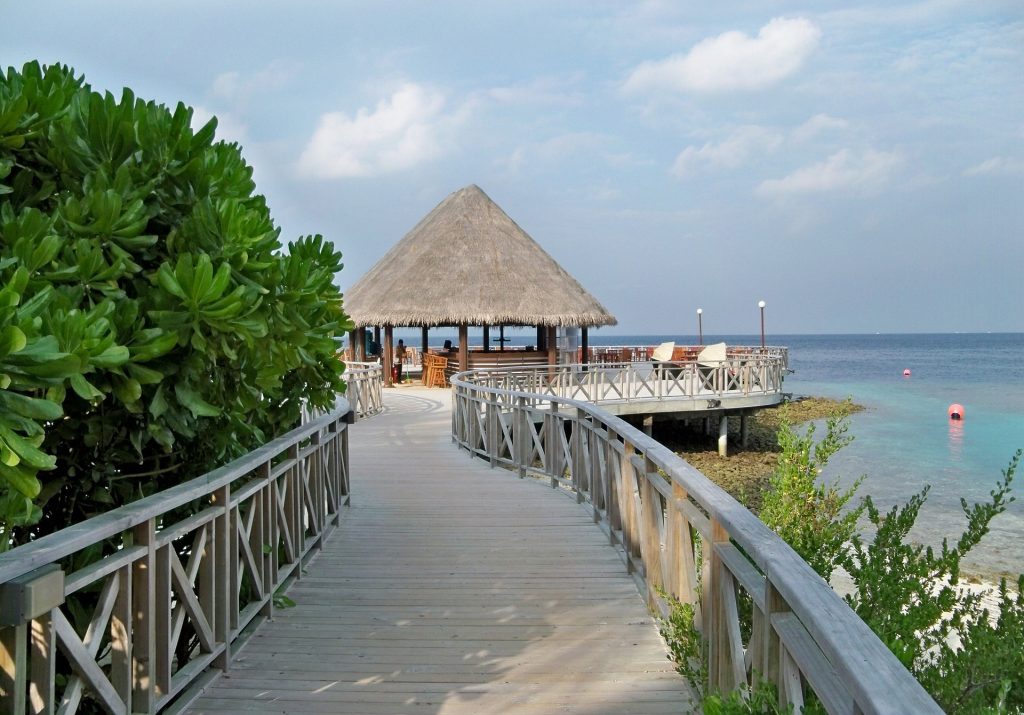
Sustainable Tourism Initiatives
Despite its popularity, the Maldives recognizes the importance of preserving its delicate ecosystem. The country has embraced sustainable tourism practices to minimize its environmental impact and safeguard its natural wonders for future generations. Eco-friendly measures such as solar energy usage, desalination plants for freshwater production, and waste reduction initiatives have been implemented by resorts. Furthermore, the Maldivian government has taken steps to regulate the number of visitors to sensitive areas, ensuring that tourism remains sustainable and does not compromise the delicate balance of the ecosystem.
Challenges and Resilience
While the Maldives’ tourism sector thrives, it is not without challenges. The vulnerability of low-lying islands to climate change, including rising sea levels and extreme weather events, poses a significant threat. The Maldivian government is actively addressing these concerns by investing in sustainable infrastructure and promoting eco-friendly practices. Additionally, the global travel industry’s response to the COVID-19 pandemic has tested the resilience of the Maldives’ tourism. The nation has adapted swiftly, implementing stringent health and safety measures to protect both visitors and locals, showcasing its ability to navigate challenges and emerge stronger.
Cultural Riches Beyond the Beaches
Beyond its breathtaking landscapes, a rich cultural heritage that adds depth to the tourist experience is boasted by the Maldives. Visitors can explore local communities, sample Maldivian cuisine, and participate in traditional activities, such as Bodu Beru (traditional drumming) and the Maldivian version of the lively dance form called “Baila.” This cultural immersion provides a unique perspective, allowing tourists to connect with the warm and welcoming spirit of the Maldivian people.
Conclusion
The Maldives, with its paradisiacal beauty, sustainable practices, and cultural richness, stands as a testament to the transformative power of tourism. As this island nation continues to enchant travelers with its pristine beaches, vibrant marine life, and luxurious accommodations, it also exemplifies the delicate balance between tourism and environmental conservation. The Maldives’ ability to navigate challenges, coupled with its commitment to sustainability, ensures that it remains a timeless destination for those seeking a slice of heaven on Earth.







